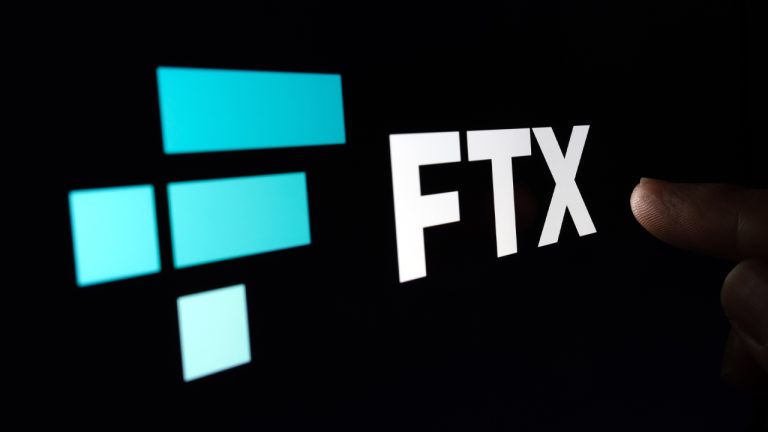 New data shows that 134 countries, representing 98% of global GDP, are now exploring central bank digital currencies (CBDCs), with 66 nations advancing to pilot or development stages. Every G20 nation is engaged in CBDC efforts, with notable leaders such as China and the European nations pushing forward. The U.S. remains lagging behind Europe and […]
New data shows that 134 countries, representing 98% of global GDP, are now exploring central bank digital currencies (CBDCs), with 66 nations advancing to pilot or development stages. Every G20 nation is engaged in CBDC efforts, with notable leaders such as China and the European nations pushing forward. The U.S. remains lagging behind Europe and […] The Bahamas has enacted the Digital Assets and Registered Exchanges Act, 2024 (DARE 2024), establishing itself as a leader in digital asset regulation. Announced by the Securities Commission, DARE 2024 builds on the DARE Act, 2020, introducing significant reforms to address the evolving digital asset landscape. Christina Rolle, Executive Director of the Securities Commission, emphasized […]
The Bahamas has enacted the Digital Assets and Registered Exchanges Act, 2024 (DARE 2024), establishing itself as a leader in digital asset regulation. Announced by the Securities Commission, DARE 2024 builds on the DARE Act, 2020, introducing significant reforms to address the evolving digital asset landscape. Christina Rolle, Executive Director of the Securities Commission, emphasized […]

Regulators in the Bahamas are sick of their citizens' reluctance to adopt a CBDC, so they're forcing commercial banks to get on board.
The Bahamian government will soon start forcing commercial banks to distribute its central bank digital currency (CBDC). Known locally as the Sand Dollar, the CBDC accounts for less than 0.41 percent of the currency in circulation and the Central Bank of The Bahamas reported that the CBDC has been used less and less as time goes on. Facing similar circumstances, any private business would likely be preparing to go out of business. The central bank, however, seems to have other plans in mind.
After an interview with Central Bank of the Bahamas Governor John Rolle, Reuters reporters Elizabeth Howcroft and Marc Jones described Rolle’s stance, writing, “With [CBDC] take-up still limited, carrot was turning into stick and commercial banks were now being told of regulations that will effectively force them to distribute [the CBDC].”
In other words, the central bank rolled out a CBDC, but people were not interested. In an early attempt to spur adoption, the central bank offered a "carrot" in the form of rebates given in return for topping up CBDC wallets and spending the CBDC in stores. Yet, it still was not enough to spur mass adoption. Therefore, the government is setting the carrots aside and pulling out the stick of regulation to force banks to distribute the CBDC.
 The Bahamas, the first country to issue a central bank digital currency (CBDC) called the Sand Dollar, is preparing regulations to mandate commercial banks to provide access to the e-money to boost adoption. Central Bank Governor John Rolle indicated that these regulations would be implemented within two years. “We’ve begun to signal that to our […]
The Bahamas, the first country to issue a central bank digital currency (CBDC) called the Sand Dollar, is preparing regulations to mandate commercial banks to provide access to the e-money to boost adoption. Central Bank Governor John Rolle indicated that these regulations would be implemented within two years. “We’ve begun to signal that to our […]

Salame proposes to satisfy the debtors by transferring a residence he owns to FTX Digital Markets Ltd.
The former co-chief executive of FTX Digital Markets, Ryan Salame, has agreed to transfer his multimillion-dollar property in the Bahamas as part of his plea agreement in a criminal case.
According to a motion from FTX Trading Ltd and affiliated debtors filed with the United States Bankruptcy Court for the District of Delaware on May 1, Ryan Salame has agreed to give up a $5.9 million house he owns in the Bahamas.
Salame pleaded guilty to criminal charges in September 2023 and his plea agreement required him to pay $5.6 million in restitution to the debtors.

The Bahamas Supreme Court says Sam Bankman-Fried has the right to be heard before the island nation consents to some of the charges that US authorities filed against the disgraced FTX founder. Bankman-Fried is now facing charges that are not covered in the original indictment that served as the basis for his extradition. According to […]
The post Bahamas Supreme Court Allows FTX Founder Sam Bankman-Fried To Contest Post-Extradition Charges appeared first on The Daily Hodl.
 Former CEO of crypto exchange FTX, Sam Bankman-Fried, has asked a judge in the U.S. to dismiss several charges against him filed after his extradition from the Bahamas. His lawyers insist that prosecutors have not obtained consent from Bahamian authorities for the additional counts. FTX’s Sam Bankman-Fried Urges Court to Drop Post-Extradition Charges Attorneys representing […]
Former CEO of crypto exchange FTX, Sam Bankman-Fried, has asked a judge in the U.S. to dismiss several charges against him filed after his extradition from the Bahamas. His lawyers insist that prosecutors have not obtained consent from Bahamian authorities for the additional counts. FTX’s Sam Bankman-Fried Urges Court to Drop Post-Extradition Charges Attorneys representing […]
While many countries have sped up their efforts to regulate cryptocurrencies following a crisis-filled 2022, most still lack a clear framework for the industry to build around.
As cryptocurrencies continue to become a bigger part of the global economy, more and more governments are exploring ways to regulate the industry and construct rules for firms operating in the space.
There have been some significant regulatory developments in recent weeks, with the European Parliament approving the Markets in Crypto-Assets (MiCA) regulations on April 20, Ukraine announcing it would adopt the same set of rules, and South Korea making progress with its proposed regulations.
While US regulators have been busy infighting and refusing to provide the most basic of clarity for the crypto industry, the European Union just approved the MiCA regulation, which provides a comprehensive regulatory framework for crypto in Europe. It's sad to see the US being…
— Tyler Winklevoss (@tyler) April 20, 2023
The collapse of crypto exchange FTX has led to calls for fast-tracked regulations in numerous countries, with its bankruptcy resulting in a contagion that contributed to the downfall of many firms it associated with.
Speaking to Cointelegraph, chairman and co-founder of Animoca Brands Yat Siu noted that his firm is “very pro-regulation, as that provides a framework that legitimizes the industry.” Sui said that a lack of regulatory clarity could have the opposite effect and create uncertainty, adding:
“Broadly speaking, regulation has seen a much more positive direction in places like Hong Kong, Japan, UAE, and even parts of Europe compared to the U.S., which has attracted capital, talent and jobs in those places.”
Below is a breakdown of crypto regulations in different countries worldwide and whether they provide clear rules for a cryptocurrency industry to be built around, if they are hostile toward crypto firms, or if they lack clear regulations.
This is not a definitive list but aims to cover many of the largest countries by gross domestic product and those with unique rules. Most European Union member states are not included, with many likely to adopt the incoming MiCA regulations.
Regulations can be highly nuanced, so attempts to categorize different countries’ regulations may be an oversimplification.
Bahamas: The Bahamas has become desirable for crypto firms’ headquarters due to its friendly tax policies and transparent regulatory framework. FTX was headquartered there, and Coinbase is reportedly set to create a derivatives exchange there.
Brazil: Former Brazilian President Jair Bolsonaro signed a crypto bill into law on Dec. 22, 2022, which legalized using crypto as a payment method and established a licensing regime for virtual asset service providers.
Canada: The first country to approve a Bitcoin (BTC) exchange-traded fund; Canada requires all crypto trading platforms to register with regulators and, for the most part, has clear regulations that individuals and businesses must follow.
Cayman Islands: Similar to the Bahamas, the Cayman Islands has a clear regulatory framework and friendly tax policies, making it a preferred location for many crypto firms.
El Salvador: The first country to recognize Bitcoin (BTC) as legal tender; it has fully embraced crypto and plans to create a “Bitcoin City,” which will provide residents with tax benefits. The country has even paved the way for Bitcoin-backed bonds.
Japan: Japan’s clear regulatory framework places strict standards on crypto exchanges, including a requirement to segregate exchange and customer assets, which meant that customers of FTX Japan could fully withdraw all their funds following the collapse of its parent company.
Mexico: Mexico’s central bank has broad powers enabling it to regulate virtual assets following laws passed in 2018 outlining the requirements for firms operating in the crypto industry.
Switzerland: While Switzerland has strict laws regarding Anti-Money Laundering (AML) and Know Your Customer requirements, its regulatory framework is clear and provides its crypto industry with clear guidelines on how it must operate.
Afghanistan: After the Taliban came to power, it banned cryptocurrency trading in August 2022.
Algeria: The purchase, use, sale and holding of crypto has been prohibited in Algeria since 2017.
Bangladesh: Although Bangladesh has indicated a desire to become a “Blockchain-enabled Nation,” transacting with crypto is illegal.
Bolivia: The Central Bank of Bolivia issued a resolution to ban the use of crypto in 2014.
China: China banned local crypto exchanges in 2017, progressing to a blanket ban on mining and cryptocurrency use in 2021.
Egypt: Crypto transactions in Egypt have been prohibited since 2018, but the nation appears to be warming to crypto following reports earlier this year that it was looking at creating its own regulatory framework for crypto.
Morocco: Transacting with crypto has been illegal in Morocco since 2017.
Nepal: Nepal has outright banned any use of crypto in the country and, earlier this year, told internet service providers and email service providers to prevent access to “websites, apps, or online networks” related to crypto.
Australia: Australia’s lack of clear regulations has left consumers heavily exposed to industry-wide events such as the collapse of FTX, but it is currently making progress on establishing broad regulations as it engages in a public consultation on how to classify crypto and firms operating in the space.
Hong Kong: Hong Kong has been quickly progressing in its efforts to regulate crypto and become a crypto hub but still lacks clear regulations. It is set to release crypto exchange licensing guidelines next month, with its courts also recently recognizing crypto assets as property.
India: While India has imposed AML rules on crypto, it lacks clear regulations for the crypto industry and recorded huge drops in crypto exchange activity after putting in place hefty taxation laws in 2022. The Reserve Bank of India banned cryptocurrency in 2018, but the supreme court lifted the ban in 2020.
Magazine: Whatever happened to EOS? Community shoots for unlikely comeback
Russia: While there are reports that Russia may adopt crypto regulations as early as June, it currently does not have a clear regulatory framework and has previously banned using cryptocurrencies for commerce.
South Korea: South Korea has some crypto regulations and is close to passing its own sweeping crypto bill, which would require crypto exchanges and service providers to segregate customer and business funds, among other measures.
United Kingdom: While the U.K.’s financial regulator — the Financial Conduct Authority — has recently called upon the crypto industry to work with it as it develops its own regulatory framework, it currently has limited powers to regulate the sector and has said that firms will have four months to implement changes required by the rules when they come into force.
United States: Although the U.S. still has the most crypto-related development and a high proportion of crypto users, it lacks a clear regulatory framework that some argue drives firms offshore.
 Roughly 11 days ago, it was reported that Nishad Singh, the former director of engineering at FTX, was working with federal prosecutors to arrange a plea deal. On Tuesday, Singh pleaded guilty to criminal charges and stated, “I am unbelievably sorry for my role in all of this.” Singh Cooperating With Authorities in FTX Investigation; […]
Roughly 11 days ago, it was reported that Nishad Singh, the former director of engineering at FTX, was working with federal prosecutors to arrange a plea deal. On Tuesday, Singh pleaded guilty to criminal charges and stated, “I am unbelievably sorry for my role in all of this.” Singh Cooperating With Authorities in FTX Investigation; […]
FTX lawyers, joint provisional liquidators of FTX.US and the Bahamas and a committee of creditors have all opposed the appointment of an independent examiner.
An investigation into FTX’s collapse by an examiner could cost the firm upwards of $100 million without providing any benefit to creditors or equity holders, argues lawyers representing the bankrupt crypto exchange.
The arguments were part of a Jan. 25 objection to a motion from the United States Trustee in December, which called for the judge to appoint an independent examiner to ensure any investigations are transparent and their findings made public.
This will be fascinating.
— MetaLawMan (@MetaLawMan) January 26, 2023
4 Senators submitted a letter asking for an Independent Examiner. Will they do more?
Several States have entered the FTX case. Will they lend support for an Examiner?
The SEC asked for the Independent Examiner in Enron. Will they say anything here? https://t.co/KiSZKYonCD
FTX lawyers argued that creditors would not benefit from an examiner investigation which duplicates investigations led by FTX’s CEO John J. Ray III, a committee of creditors, law enforcement agencies, and congress, adding:
“The appointment of an examiner, with a mandate to be determined, can be expected to cost these estates in the tens of millions of dollars. Indeed, if history is a guide, the cost could near or exceed $100 million.”
The creditors committee, also known as The Official Committee of Unsecured Creditors, submitted their own objection to the appointment of an independent examiner on Jan. 25, also citing the prohibitive costs involved and the investigations of various parties which are already underway.
In the original motion, the U.S. Trustee had noted if the court was concerned about the duplication of work, it could allow the examiner to access existing work, adding:
“An examiner may also allow for a faster and more cost-effective resolution of these cases by allowing Mr. Ray to focus on his primary duty of stabilizing the Debtors’ businesses while allowing the examiner to conduct the investigation.”
Joint provisional liquidators in the Bahamas and FTX.US also opposed the appointment on Jan. 25, pointing to a section of the bankruptcy code which allows the judge to appoint an examiner “as is appropriate,” and arguing that the unnecessary costs and delays which would accompany the appointment of an examiner renders it “inappropriate.”
Related: Breaking: BlockFi uncensored financials reportedly shows $1.2B FTX exposure
The appointment of an independent examiner has been a key topic throughout FTXs bankruptcy trial.
On Dec. 9 a group of four U.S. senators which included Elizabeth Warren wrote an open letter to Judge John Dorsey of the U.S. Bankruptcy Court for the District of Delaware, claiming that FTX’s counsel Sullivan & Cromwell had a conflict of interest in the case and cast doubt over their ability to provide findings which inspire confidence.
However, the judge ruled on Jan. 20 that there were no potential conflicts of interest sufficient to stop the law firm from continuing to act as FTX’s counsel.
The judge will decide whether to accept the appointment of an independent examiner in a court hearing on Feb. 6.
Independent examiners are often appointed by bankruptcy courts to investigate details of complex cases brought before them, and have been appointed in other high-profile bankruptcy cases such as Lehman Brothers during the subprime mortgage crisis and the crypto exchange Celsius.